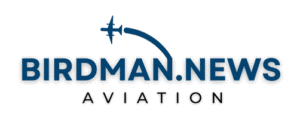Pursuing a Commercial Pilot License (CPL) in Kenya and East Africa is a structured pathway to a professional aviation career. The CPL authorizes pilots to operate aircraft for compensation or hire, serving as a critical step toward roles in commercial airlines, charter services, and cargo operations.
🛫 Overview of the CPL Course
Duration & Structure:
Typically spans 8 to 12 months for full-time students and also requires a minimum of 200 total flight hours, inclusive of hours from the Private Pilot License (PPL) stage .
Curriculum Components:
- Ground School (Theory Classes)
This covers the academic side of flying, where you’re trained on: Air law and regulations (Kenya Civil Aviation Authority and ICAO rules), navigation and flight planning (how to plan routes, calculate fuel, read maps), meteorology (understanding weather patterns and their impact on flights), aircraft technical knowledge (how engines, systems, and instruments work), human factors and crew resource management (CRM) (dealing with stress, fatigue, and teamwork in the cockpit), and radio Telephony (RT) (communicating safely with air traffic control)
- Flight Training (Practical Flying)
You’ll log a minimum of 200 flying hours, including: Solo flights (without an instructor), cross-country navigation flights (flying to other airstrips over long distances), night flying (training in low-light and darkness conditions), instrument flying (using only cockpit instruments when visibility is poor), emergency procedures (handling engine failures, forced landings, and system malfunctions), multi-engine aircraft training (if pursuing a CPL with Multi-Engine Rating)
Aircraft commonly used:
- Cessna 172
- Cessna 152
- Piper Seneca (for multi-engine)
- Diamond DA42 (modern twin-engine trainer)
Entry requirements:
- Minimum age of 18 years.
- Possession of a valid Class 1 Medical Certificate.
- Proficiency in English, meeting ICAO standards.
- Completion of a PPL and requisite flight hours.
✈️ Notable Aviation Schools Offering CPL in Kenya and East Africa
| Flight School | Location | Key Highlights |
| Kenya School of Flying | Nairobi, Kenya | Offers CPL with 155 flight hours; comprehensive ground training. |
| Proactive Flight Training School | Nairobi, Kenya | KCAA-approved; emphasizes safety and professionalism. |
| East African School of Aviation (EASA) | Nairobi, Kenya | ICAO-accredited; offers a range of aviation programs. |
| 99 Flying School | Nairobi, Kenya | Provides CPL training with a focus on high training standards. |
| Mt Kenya Flight School | Nanyuki, Kenya | Offers a CPL-MEL guaranteed course over 12–18 months. |
| Flitestar Academy | Nairobi, Kenya | Provides CPL and Multi-Engine Instrument Rating courses. |
| East African Civil Aviation Academy (EACAA) | Soroti, Uganda | Offers integrated CPL programs; known for producing skilled pilots. |
| Ethiopian Aviation Academy | Addis Ababa, Ethiopia | Offers CPL with Instrument and Multi-Engine Rating; internationally acclaimed. |
👨✈️ Successful Alumni from East African Aviation Schools
- Captain Clive Okoth: Graduated from the East African Civil Aviation Academy; currently serves as a captain at Uganda Airlines, operating the CRJ 900 aircraft.
- Captain Robert Wakhweya: Also an alumnus of the East African Civil Aviation Academy; serves as the Chief Pilot at Uganda Airlines, flying the Airbus A330-800.
✅ Conclusion: Is a CPL Worth It?
Obtaining a Commercial Pilot License in Kenya or East Africa is a significant investment in terms of time, effort, and finances. However, for those passionate about aviation, it opens doors to rewarding careers in various sectors of the aviation industry. The region boasts reputable training institutions that have produced pilots who have excelled both locally and internationally.
If you’re considering this path, it’s advisable to research each school’s offerings, visit campuses if possible, and consult with current students or alumni to make an informed decision.



The Commercial Pilot License (CPL) course is a pivotal program for individuals aspiring to a professional aviation career. It meticulously builds upon foundational pilot skills, introducing advanced maneuvers, complex aircraft systems, and rigorous instrument flight procedures. While demanding in terms of time, dedication, and financial investment, successfully completing the CPL course unlocks a vast array of opportunities in the aviation industry. It equips pilots with the comprehensive knowledge and refined practical skills required for professional operations, making it an indispensable and highly recommended step for anyone committed to flying for a living.